Four candidates, two seats: who’s next for the Swiss government?
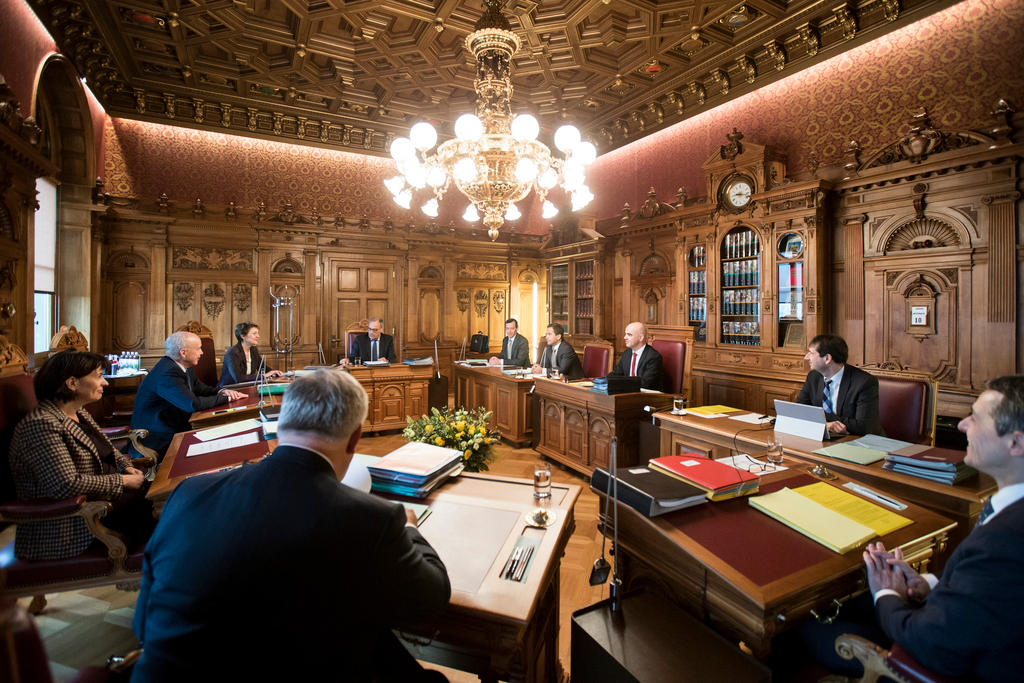
On Wednesday, December 5, parliament meets to elect two new members of the seven-seat Federal Council, Switzerland’s executive body. Four candidates are in the running – three female, one male.
After months of debates about gender, geography, language skills, and a healthy dose of party politics, the race to replace two outgoing Federal Councillors – ministers, in other words – comes to a conclusion in parliament on Wednesday.
Within the ranks of the centre-right Radical-Liberal party, whose current Federal Councillor Johann Schneider-Ammann announced his imminent departure in September, one name emerged almost straight away as a possible replacement: Karin Keller-SutterExternal link.
A translator and teacher from canton St Gallen, Keller-Sutter was elected to the Senate in 2011 after more than a decade spent directing the police and justice department of her home canton. Since then, at the national level, she has won admiration from right and left for her competence, and no substantial opposition to her candidacy has been voiced.
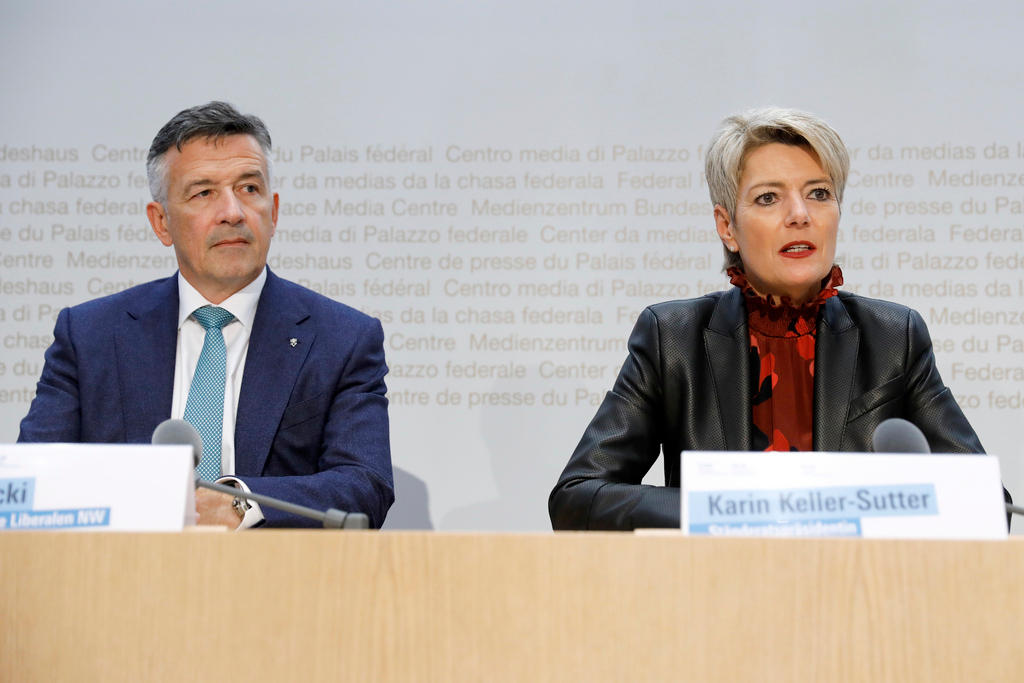
The bilingual French and German speaker, born in 1963, hails from the more right-wing end of her party’s spectrum. According to a 2015 survey, Keller-Sutter holds tough positions on questions including naturalization, parental leave, and transparency in party financing.
She is joined on the Radical-Liberal ticket to be put to parliament tomorrow by the only male candidate in the running – fellow Senator Hans WickiExternal link, from canton Nidwalden.
Wicki, a year younger than Keller-Sutter, also has a clearly liberal profile, though he sits slightly less to the right on issues like the naturalization of foreigners and gun ownership. If elected, the former UBS bank employee would become the first-ever Federal Councillor from the small central Swiss canton of Nidwalden.
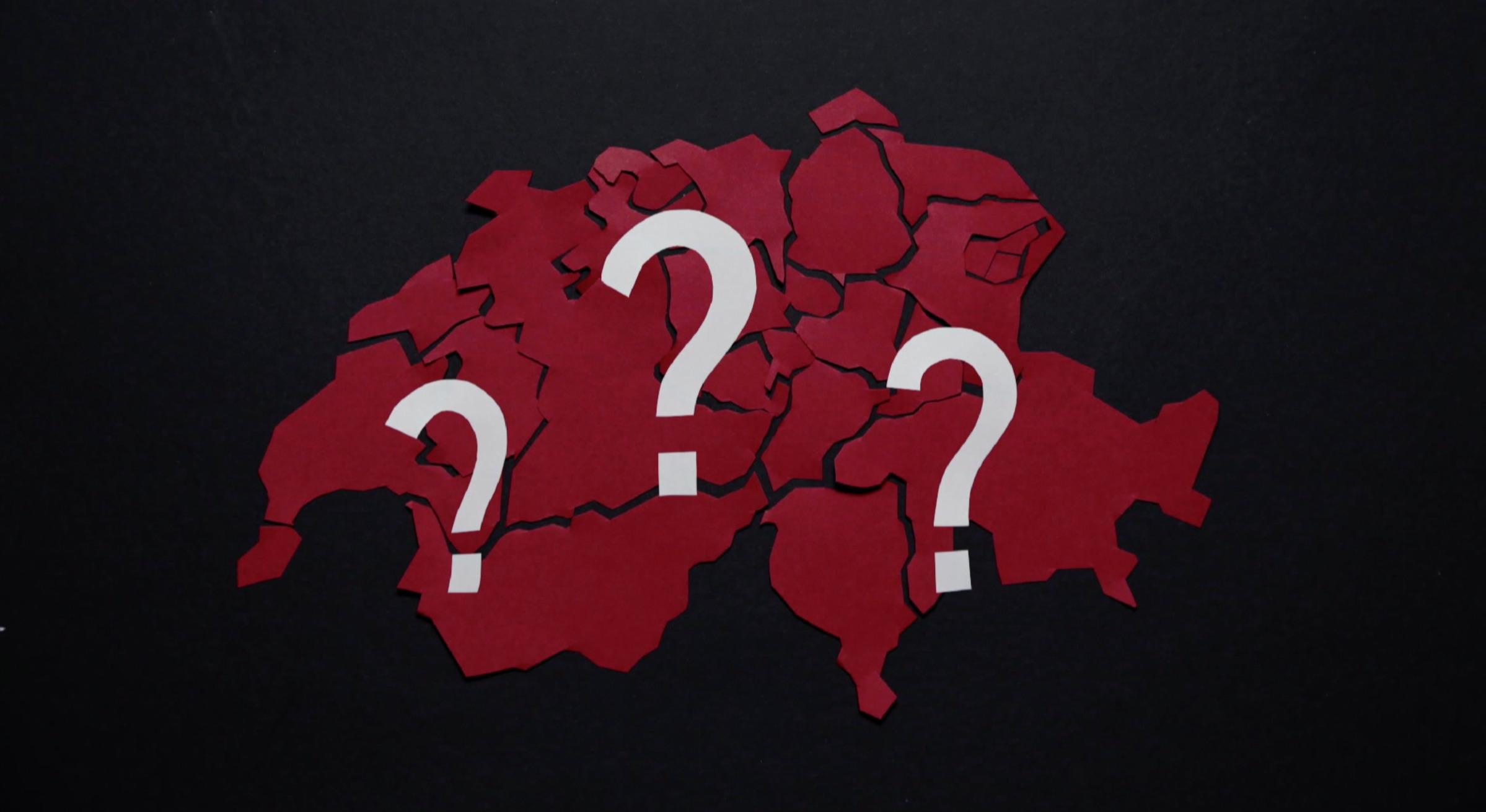
More
How are Swiss government members elected?
Christian Democrat ticket
Meanwhile, the centrist Christian Democrats are also in need of a new occupant for their Federal Council seat, after the charismatic and popular Doris Leuthard announced that she would be stepping back at the end of this year.
Two women have been put forward. Viola AmherdExternal link from canton Valais, a member of the House of Representatives since 2005, is well known at the federal level, and well respected for her discreet ability to reach consensus with others.
Trained as a solicitor, Amherd’s positions on some key current debates vary: liberal when it comes to adoption rights for homosexual couples, as well as promoting large-scale building of renewable-energy infrastructure; she is nevertheless opposed to an extension of the carbon tax and proposals to legalise cannabis.
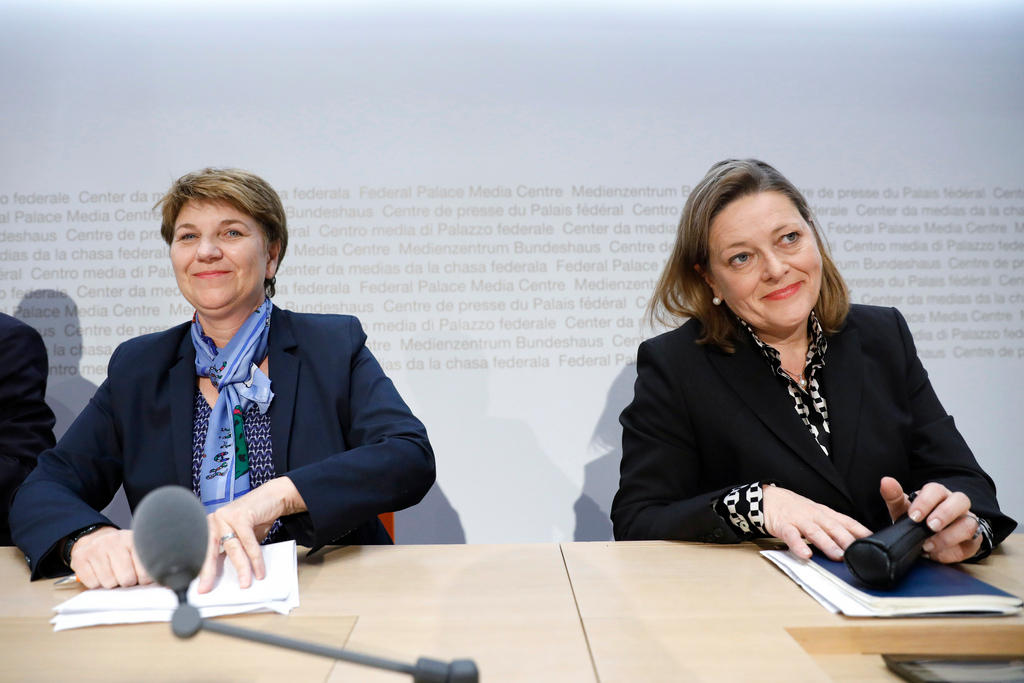
Her opponent on Wednesday, Heidi Z’graggenExternal link (pronounced ‘Scracken’), has been a member of the cantonal government of Uri since 2004; like Wicki from Nidwalden, she would, if elected, be the first-ever Federal Councillor from her mountainous canton.
Born in 1966 and having worked first as a primary school teacher before entering politics, Z’graggen is a notable advocate of nature and environmental issues. Unlike Amherd, she’s against any softening planning restriction laws to build renewable energy infrastructure, though she is in favour of a strengthened carbon tax to tackle climate change.
The only one of the four candidates who answered swissinfo.ch’s question about the role of the Swiss abroad community, Z’graggen said that they are “ambassadors” for Switzerland, and that she would work to ensure that their voices are heard in the political process.
Party considerations
Although Federal Councillors are bound to act in the national interest, rather than follow their party line, tomorrow’s election of two new national figures must also be seen in light of ongoing political shifts in Switzerland, as well as impending national elections.
In this context, the Christian Democrats have a particular need for a strong personality to light the way into next year’s national elections, where they are expected to emerge as one of the biggest losers. Despite being one of the founding parties of Switzerland, the centrist group has shed seats at both the national and cantonal levels in the past decade, and will struggle to replace the charismatic presence of Doris Leuthard.
The Radical-Liberal outlook, on the other hand, seems sunnier. Having picked up three new seats in the House of Representatives in 2015, as well as 34 in cantonal parliaments, the party wants to build on this to become the second-largest in the country following next year’s vote, bypassing the leftwing Social Democrats.
The new ministers – whose portfolios will be announced sometime after the election – will take up their posts on January 1, 2019.

More
Are political parties ready for the big race?

In compliance with the JTI standards
More: SWI swissinfo.ch certified by the Journalism Trust Initiative
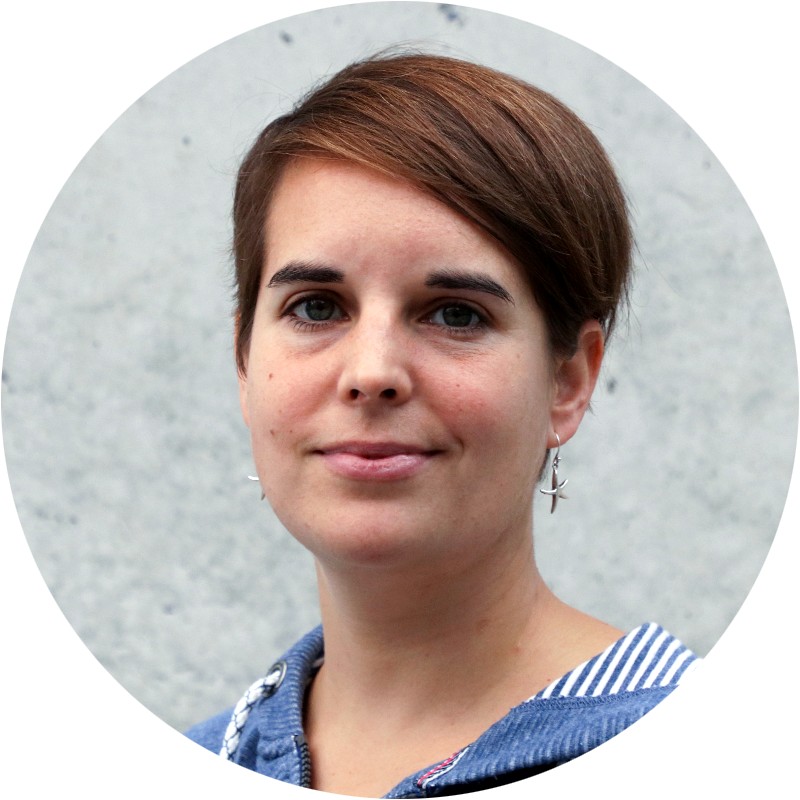
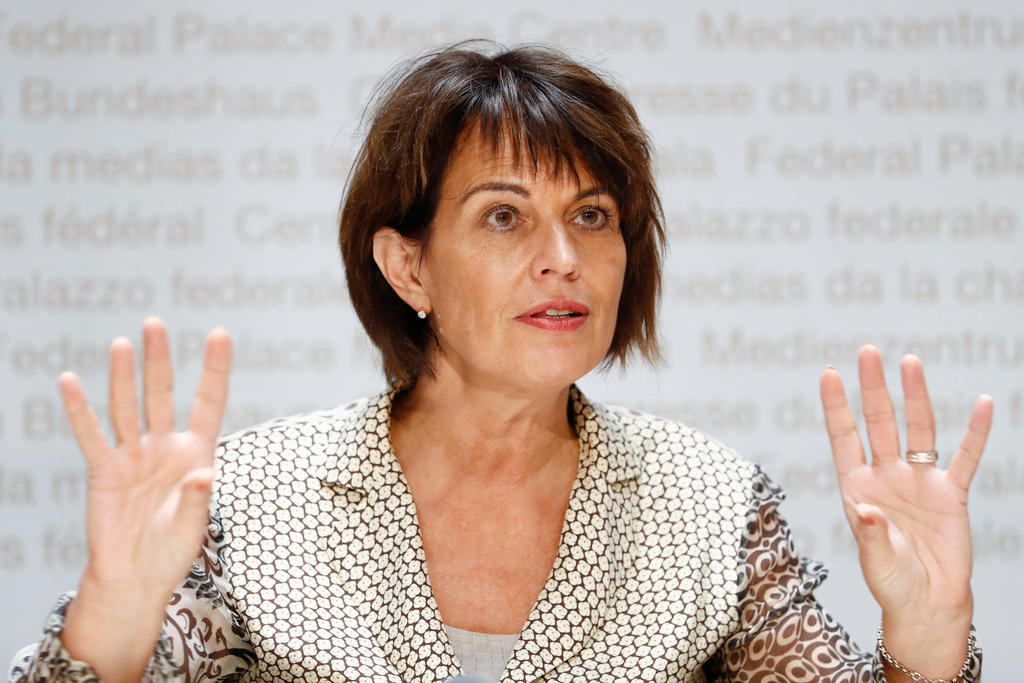

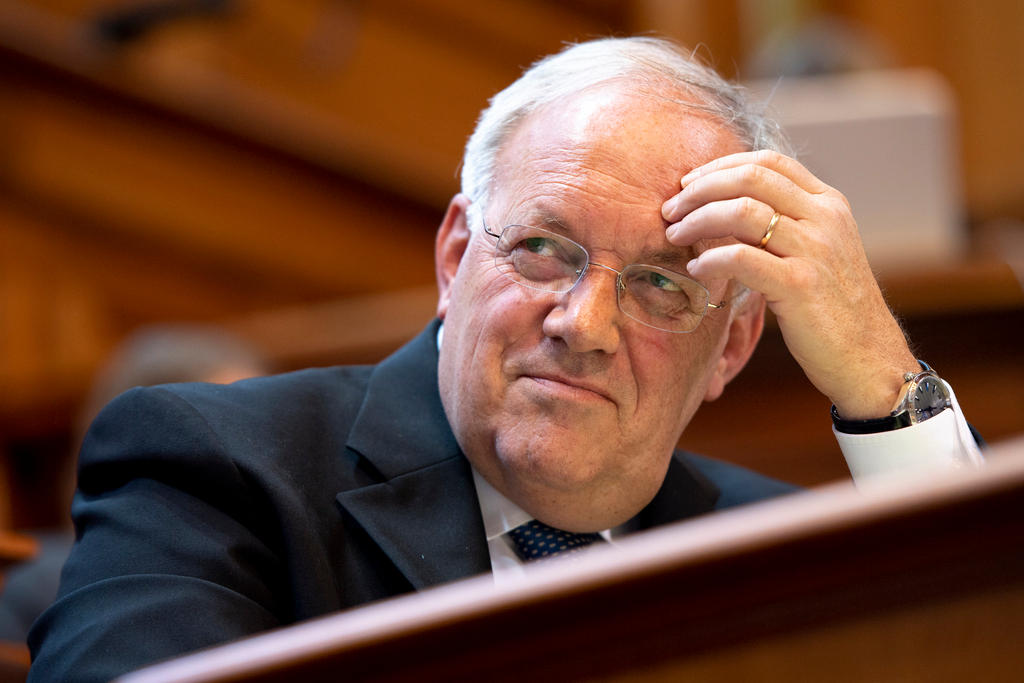
You can find an overview of ongoing debates with our journalists here. Please join us!
If you want to start a conversation about a topic raised in this article or want to report factual errors, email us at english@swissinfo.ch.